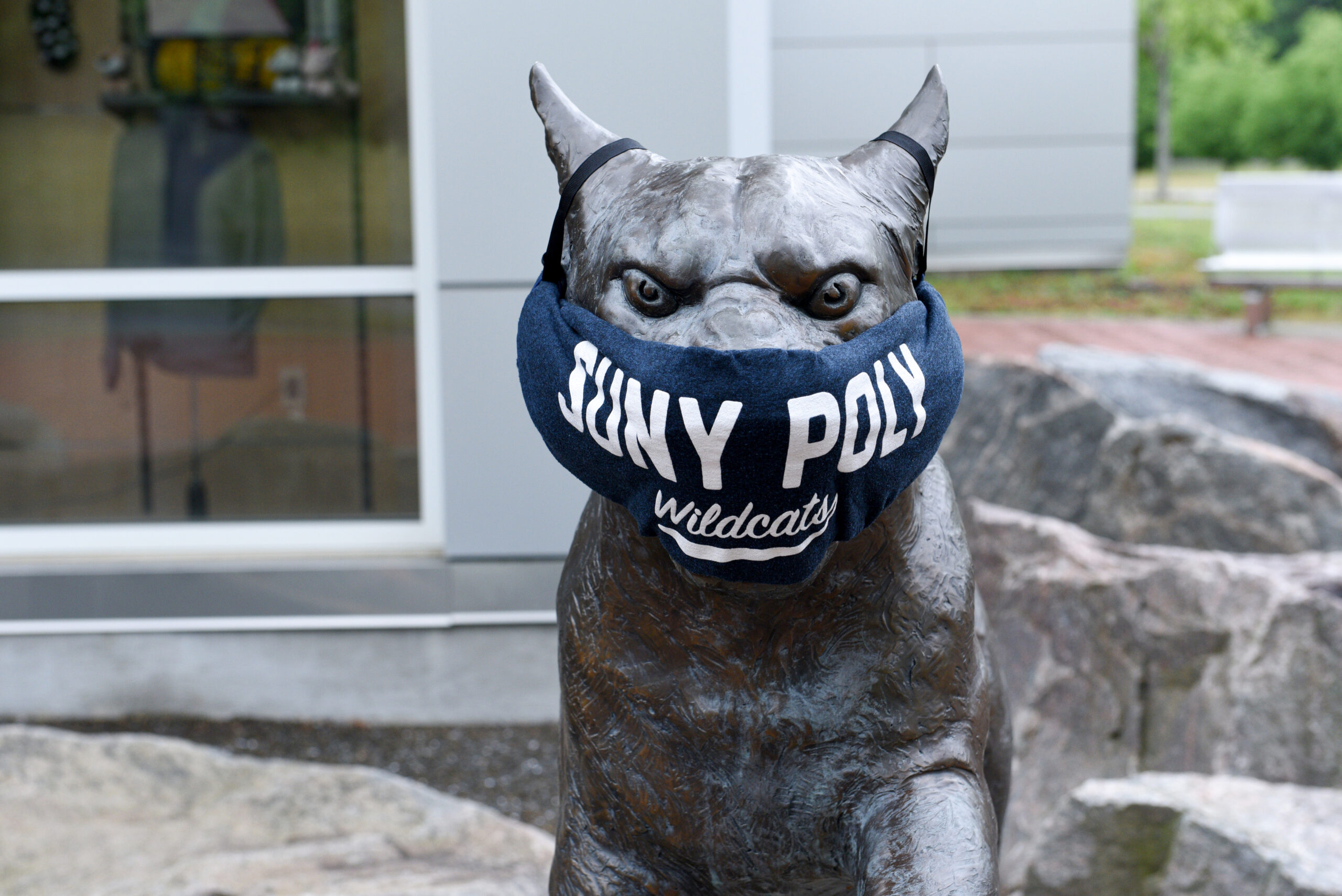SUNY Poly’s Proactive Efforts & Responses Related to COVID-19
The pandemic continued to impact New York State, the nation, and the globe. SUNY Poly adapted quickly, providing for students’ academic needs via in-person and online educational options, while continuing to prioritize health and safety.
Building a Clear Plan
SUNY Poly continually updated a dedicated COVID-19 information section, as well as the fall 2020 and spring 2021 plan sections, with communications from the Office of the President, as well as important information for parents, students, faculty, and staff that includes COVID-19 potential exposure notices and guidance and directives from health experts, state, and federal officials. Countless hours were spent by planning teams, steering committees, and working groups to develop the spring 2021 plan, which was refined regularly based on changing guidance. Notably, the plan met or exceeded all New York State Reopening Higher Education requirements, which are some of the most stringent in the nation.
Taking Action
Overall, SUNY Poly supported the health of everyone on campus by:
- Reducing classroom and laboratory density;
- Adapting dining services to provide service that prioritizes health and safety;
- Requiring face coverings be worn at all times, including inside all buildings, classrooms, shared laboratory areas, conference rooms, restrooms, elevators, hallways, etc. with exceptions clearly communicated as the spring semester progressed;
- Adapting the fall 2020 semester calendar, which began with on-campus and online instruction on August 24, and, afterward, moves to online/distance instruction and final exams for the remainder of the semester;
- Enacting detailed, daily cleaning protocols and upgrading HVAC systems;
- Employing comprehensive pre-arrival and daily screenings, contact tracing in partnership with local health departments, and testing and quarantine as needed; and
- Providing telehealth and telemedicine, including mental health resources, among numerous other efforts.
Making a Difference
In response to the pandemic, SUNY Poly not only adapted—its faculty, staff, and students worked to make a difference:
- SUNY Poly has been proud to provide our Utica campus as a site for the New York State Department of Health to lead the vaccination of members of our community–more than 130,000 individuals were vaccinated. We are encouraging our faculty, staff, and now students who are eligible to receive the vaccine.
- SUNY Poly faculty, staff, and students were recognized by Mohawk Valley EDGE with a “Leading EDGE” award for assisting in efforts to manufacture PPE materials at both our Albany and Marcy campuses. Faculty, staff, and students utilized 3D printing technologies to create face shields for health care workers throughout the Mohawk Valley and across New York State, distributing more than 3,350 face shields to date to Oneida County, SUNY Upstate Medical, SUNY Downstate Medical, Neighborhood Center in Utica, and Clark Mills Fire Department.
- SUNY Poly announced that in partnership with Ciencia, Inc. and the New York State Department of Health, Wadsworth Center, a COVID-19 antibody test that takes only 30 minutes to provide results has been developed with support from a SUNY COVID-19 seed funding program. This research, led by SUNY Poly Empire Innovation Professor of Nanobioscience Dr. Nate Cady, facilitates the detection of antibodies against multiple COVID-19 antigens. The test reveals who has been infected previously as compared to those who have not been infected by COVID-19.
- SUNY Poly also announced a research collaboration to develop early Lyme disease diagnosis with Ciencia Inc. This effort was featured in Biophotonics, and could apply to any disease, including COVID-19, with the ultimate goal to receive approval from the FDA for the diagnostic technology.
- The publication, Lab on a Chip, published, “Disposable photonics for cost-effective clinical bioassays: application to COVID-19 antibody testing,” by researchers at SUNY Poly, including Dr. Nate Cady, Empire Innovation Professor of Nanobioscience, Dr. Natalya Tokranova, Instructor, and Graduate Student Minhaz Abedin, with researchers from the University of Rochester.

